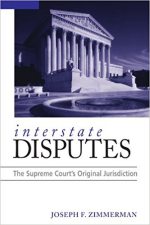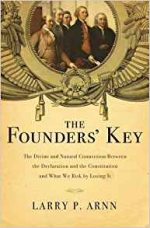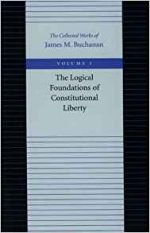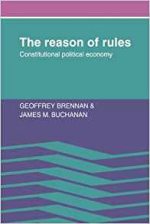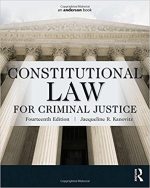The People’s Republic of China (PRC)’s Confucius Institutes, which offer Chinese language instruction in universities around the world, have been the subject of controversy since appearing on U.S. campuses in 2005, particularly for their perceived effects on academic freedom and lack of transparency. They have attracted further attention in recent years as the broader U.S.-China relationship has deteriorated. Some Members of Congress and others have alleged that they may play a role in China’s efforts to influence public opinion abroad, recruit “influence agents” on U.S. campuses, and engage in cyber espionage and intellectual property theft. PRC officials and scholars deny such charges, and suggest that the Institutes have become victims of a U.S. “Cold War mentality.” Supporters of the Institutes emphasize that they provide Chinese language and cultural programs that benefit students, universities, and surrounding communities and which may not otherwise be available.
Policy Developments
A provision in the National Defense Authorization Act for FY2019 (P.L. 115-232, Section 1091) prohibits the use of Department of Defense (DOD) funds for Chinese language instruction provided by a Confucius Institute or to support a Chinese language program at an institution of higher education that hosts a Confucius Institute.
In August 2020, the Trump Administration designated the Confucius Institute U.S. Center (CIUS), whose purpose is to oversee Confucius Institutes in the United States, as a “foreign mission” of the PRC. The designation requires CIUS to regularly file information about its operations with the Department of State. CIUS is a PRC-funded, 501(c)(3) nonprofit entity based in Washington, DC.
On December 31, 2020, the Trump Administration issued a proposed rule entitled “Establishing Requirement for Student and Exchange Visitor Program Certified Schools to Disclose Agreements with Confucius Institutes and Classrooms.” The draft rule reportedly did not complete the Office of Management and Budget review process by the end of the Trump Administration term. The Biden Administration has not resubmitted the proposal.
History and Mission
The first Confucius Institute opened in 2004 in Seoul, South Korea, followed by one at the University of Maryland (which closed in 2020). The Institutes, which operate in over 160 countries, are patterned after other national language and cultural programs, such as France’s Alliance Francaise, Germany’s Goethe Institute, the U.K.’s British Council, and Spain’s Instituto Cervantes, with some differences. Confucius Institutes exercise less autonomy from their home government than their European counterparts, and mostly are situated within foreign educational institutions, while their foreign counterparts are not. In addition to providing Chinese language instruction, according to analysts, Confucius Institutes appear designed to help improve China’s international image or reduce what PRC officials view as misconceptions about China.
. . .
The number of Confucius Institutes in the United States grew to 103 by 2017, mostly on university campuses, out of nearly 550 worldwide. China spent over $158 million on Confucius Institutes in the United States between 2006 and 2019, according to a U.S. Senate Permanent Subcommittee on Investigations report. In addition, the Institutes sponsor Confucius Classrooms in U.S. primary and secondary schools, which totaled roughly 500 in 2019.
The number of Confucius Institutes in the United States fell to 31 at the end of 2021, according to the National Association of Scholars, a nonprofit advocacy group. Many Confucius Classroom programs also have ended. U.S. universities have cited various reasons for terminating the Institutes, including concerns about academic freedom; the potential for Chinese government influence and risks to U.S. national security; differences between U.S. educational institutions and the Institutes over missions and objectives; changing curricular needs; declining interest or enrollment; difficulties of operation due to the COVID-19 pandemic; the desire to keep DOD Chinese Language Flagship funding; and encouragement by some Members of Congress. In recent years, some Confucius Institutes and Classrooms have closed in other countries as well, including Australia, Canada, Belgium, Denmark, France, Germany, and Sweden.
. . .
Some reports provide examples of Confucius Institute Board members or PRC officials directly or indirectly pressuring faculty, administrators, or invited guests at U.S. universities that host Confucius Institutes to avoid making public statements or holding events on topics that the PRC government considers politically sensitive. Other reports suggest that there have been few instances of Confucius Institutes overtly attempting to interfere in academic and extra-curricular activities and speech at U.S. host universities. Some U.S. schools, particularly larger, more prestigious ones, reportedly have successfully pushed back against or prevented PRC interference in university events, such as speaking engagements by the Dalai Lama and other figures opposed by the Chinese government.
Some observers raise additional concerns, including the lack of PRC reciprocity toward U.S. educational efforts in China, possible incomplete reporting by U.S. universities to the Department of Education regarding funds received from China for their Confucius Institutes, and some cases in which Institute instructors from China entered the United States under an improper J-1 visa category.
“Confucius Institutes in the United States: Selected Issues,” CRS In Focus IF11180, December 2, 2021 (5-page PDF![]() )
)
For more than 40 years, TheCapitol.Net and its predecessor, Congressional Quarterly Executive Conferences, have been teaching professionals from government, military, business, and NGOs about the dynamics and operations of the legislative and executive branches and how to work with them.
Our custom on-site and online training, publications, and audio courses include congressional operations, legislative and budget process, communication and advocacy, media and public relations, testifying before Congress, research skills, legislative drafting, critical thinking and writing, and more.
TheCapitol.Net is on the GSA Schedule, MAS, for custom on-site and online training. GSA Contract GS02F0192X
TheCapitol.Net is now owned by the Sunwater Institute.
Teaching how Washington and Congress work ™




